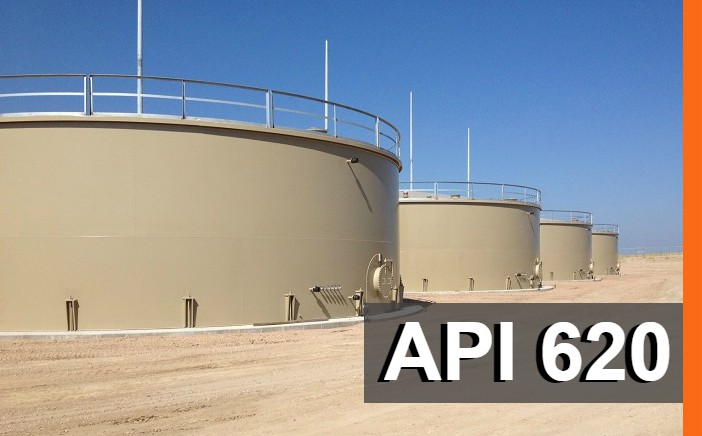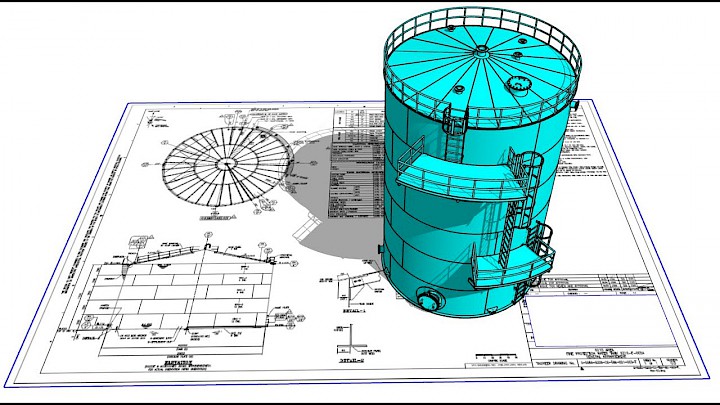Common Issues Found During API 650 Welding Inspection and How to Address Them Properly
The Benefits of Welding Examination for Boosted Safety And Security and Performance
Welding inspections are essential for ensuring that frameworks fulfill rigid market requirements. They play a crucial function in determining problems early, thereby enhancing safety and security and lowering the danger of devastating failures. Additionally, these inspections can bring about considerable cost financial savings by protecting against expensive repair work and downtime. As companies intend for better efficiency and dependability, the significance of a robust examination process can not be overemphasized. What other advantages might emerge from a commitment to comprehensive welding inspections?
Making Certain Conformity With Industry Specifications
Ensuring conformity with market criteria is necessary for maintaining top quality and safety in welding tasks. Complying with well-known procedures not only secures workers however additionally improves the durability and efficiency of the end product. Welding inspections conducted at numerous stages of the procedure help recognize any variances from these standards, allowing prompt corrective activities. This aggressive approach mitigates the risk of failings that can result from ineffective workmanship.
Conformity with sector standards promotes depend on amongst stakeholders, consisting of clients, regulatory bodies, and the workforce. It symbolizes a commitment to excellence and accountable methods, which can cause raised business opportunities and an one-upmanship in the marketplace - API 650 Welding Inspection. Regular evaluations likewise ensure that materials and methods utilized line up with the most recent technical advancements and safety regulations. Ultimately, adherence to sector criteria is not just a governing need yet a keystone of quality control in welding jobs
Enhancing Security With Early Discovery of Issues
While the primary objective of welding examinations usually focuses on conformity, they play a vital role in enhancing safety and security by enabling the very early discovery of problems. Identifying concerns such as insufficient combination, cracks, or porosity throughout examinations can substantially alleviate the risk of catastrophic failings. Early detection enables prompt interventions, making certain that damaged welds do not compromise structural stability.
Furthermore, systematic assessments promote a society of safety within companies by emphasizing the importance of high quality control. This proactive strategy not only shields workers yet likewise safeguards the surrounding environment. Routine inspections can expose trends in flaw occurrence, enabling adjustments in welding strategies and training programs to address underlying problems.
Consequently, welding assessments offer as an important protect, strengthening general safety and security and performance by determining issues before they intensify right into serious dangers. This dedication to quality directly adds to the long life and integrity of welded structures.
Decreasing Expenses by Protecting Against Failings
By implementing extensive welding assessments, companies can properly lower costs associated with failures and rework. The proactive identification of problems during the welding process reduces the danger of disastrous failings that can cause expensive repair services or substitutes. Early discovery enables timely interventions, which avoids the acceleration of minor issues into significant troubles that stress resources and budgets. Additionally, by ensuring that welds meet defined criteria, companies can prevent delays in job timelines triggered by the requirement for substantial rework or extra evaluations later while doing so. This not just saves cash yet likewise improves functional effectiveness. Furthermore, a credibility for quality craftsmanship can result in increased consumer contentment and repeat service, additional adding to economic stability. On the whole, buying welding evaluations is a critical technique that fosters expense savings while securing the stability of welded frameworks.
Improving Performance and Durability of Frameworks


Welding evaluations play an important duty in boosting the performance and longevity of structures, as they verify that welds are implemented to the highest standards. By determining issues early in the welding procedure, inspections avoid weak points that can compromise structural integrity. This proactive technique warranties that the materials utilized satisfy needed specs, therefore maximizing their load-bearing ability and strength.
Regular surveillance of welding techniques contributes to the total top quality of building and construction tasks. When welds are validated for conformity with market requirements, the potential for fatigue and failing in time is substantially reduced. Frameworks that are developed description with appropriately checked welds are likely to experience less upkeep issues and boosted durability.
Eventually, rigorous welding examinations not only bolster the prompt effectiveness of a framework however additionally prolong its operational life expectancy, offering lasting value to both builders and end-users alike.
Promoting a Society of High Quality and Integrity
A commitment to quality and integrity in welding methods substantially contributes to the total success of construction jobs. They promote a society that encourages careful focus to information and adherence to industry requirements when companies prioritize these values. This society not just enhances the skill level of welders yet likewise advertises accountability and teamwork among all stakeholders associated with the project.

Normal welding inspections serve as a foundation in this cultural shift, enhancing the importance Go Here of consistent performance and safety steps (API 650 Welding Inspection). By carrying out extensive assessment procedures, business can determine prospective defects early, mitigating risks and avoiding pricey rework. A focus on high quality and dependability imparts confidence amongst customers and partners, leading to more powerful relationships and enhanced online reputations.
Connections Eventually, fostering a society of high quality and reliability in welding practices not only boosts project end results however also assures long-lasting sustainability and success in the construction market.
Frequently Asked Inquiries
What Credentials Should a Welding Examiner Have?
A welding inspector need to possess appropriate qualifications, such as AWS CWI or CSWIP. Furthermore, they need to have experience in metallurgy, welding processes, and assessment methods, along with strong logical abilities and attention to information for reliable assessments.

Just How Frequently Should Welding Inspections Be Conducted?
Welding evaluations should be conducted frequently, preferably after each substantial stage of her latest blog the welding procedure. In addition, routine examinations need to take place based upon task needs, solution problems, and regulative requirements to ensure continuous quality and safety.
What Tools Are Made Use Of During Welding Inspections?
Welding assessments use different tools, including ultrasonic testers, magnetic particle testers, aesthetic examination devices, and radiographic devices. Each tool serves a particular purpose, ensuring weld top quality and architectural stability through comprehensive examination and analysis.
Can Welding Inspections Be Executed From Another Location?
Welding evaluations can indeed be carried out remotely making use of sophisticated technologies such as drones and specialized cameras. These devices allow inspectors to analyze welding high quality and integrity from a range, improving performance and safety in numerous atmospheres.
What Are the Usual Kinds Of Welding Defects?
Usual types of welding issues include porosity, splits, incomplete blend, undercutting, and slag addition. These defects can compromise the stability and stamina of welds, leading to potential failings in architectural applications if not addressed effectively.
Welding assessments are important for making certain that structures fulfill stringent market criteria. Welding examinations performed at different phases of the process assistance identify any type of inconsistencies from these standards, allowing prompt corrective actions. Welding examinations play an important function in boosting the efficiency and long life of frameworks, as they confirm that welds are carried out to the highest possible standards. Welding evaluations must be conducted on a regular basis, preferably after each significant phase of the welding process. API 650 Welding Inspection. Welding evaluations use different devices, consisting of ultrasonic testers, magnetic fragment testers, visual inspection tools, and radiographic devices